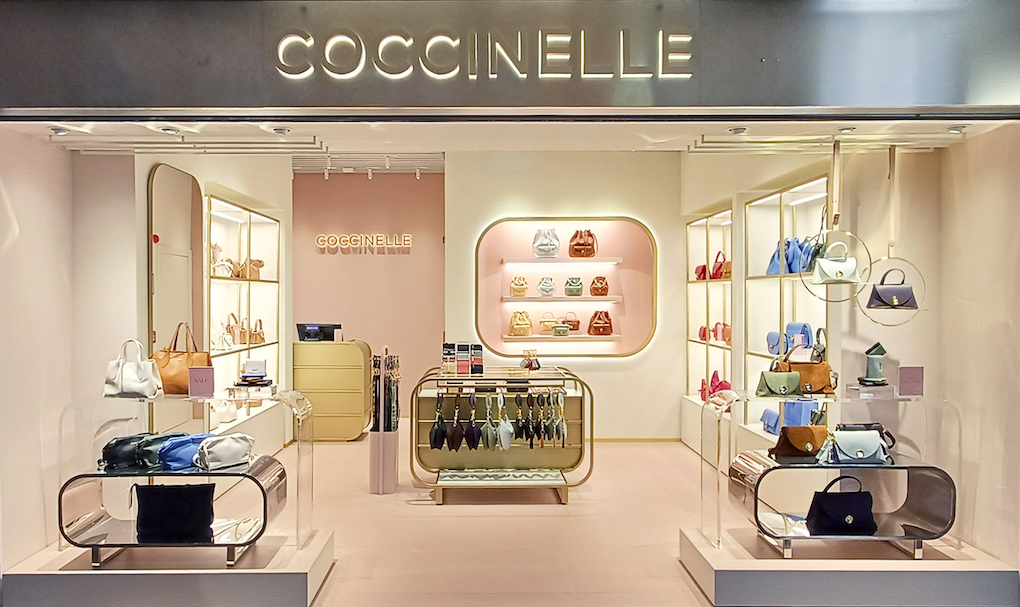SPAIN. The Casino of Madrid hosted today (Wednesday) the official launch of Circulo Español del Lujo Fortuny, an association founded by a group of companies in the luxury sector: Loewe, Numanthia, Lladró, Carrera y Carrera, Natura Bissé, Pagos Marqués de Griñón, Village Olive payments, La Amarilla de Ronda (LA Organic) and Sotogrande.
Circulo Fortuny”˜s main objectives are to promote and protect the luxury sector as part of the cultural and creative industries, at both national and international levels, acting as spokesperson of the Spanish brands in this sector. In addition it aims to enhance the image of high-end Spanish brands’ products and services abroad, and to represent and defend this sector as a key driver for the Spanish economy by promoting training and sharing experience and knowledge among its members.
The European Cultural and Creative Industries Alliance (ECCIA), composed of the three major European luxury goods and creative industries organisations – Comité Colbert (France), Fondazione Altagamma (Italy) and Walpole British Luxury (UK), said it was pleased to welcome the launch of Circulo Fortuny, which will join the ECCIA Alliance.
European Commission Vice President Antonio Tajani endorsed the launch of Circulo Fortuny: “The European cultural and creative industries of which the luxury goods sector is a key component, has shown sustainable growth through its ongoing creativity and innovation,” he said. “Luxury exports have continued to grow throughout the financial crisis, and the sector is an example of European cultural excellence at its best. The creation of the Spanish Circulo is good news.”
The European luxury sector is a key driver of sustainable growth, and is of particular significance to Europe by contributing to its overall economic health, competitiveness, creativity, innovation and employment.
A survey carried out in September 2009 by TNS Sofres showed that 69% of European consumers believe that the luxury sector plays an important role in the health and competiveness of the European economy.
European brands account for about 80% of the worldwide luxury market and, among the top 25 worldwide luxury companies, 17 are from the European Union.
The personal luxury goods market remains a key driver of growth for Europe, accounting for more than €137 billion of the worldwide luxury goods consumption, and employing about 800,000 people in 2010.
More than 70% of the luxury goods produced in Europe are exported outside the region and, unlike most mass-market consumer goods producers which outsource production to third countries, the European luxury goods sector continues to design and manufacture in Europe.
Its sustainable business model and drive for innovation and excellence has ensured the sector has proven resilient in the financial crisis, says the ECCIA Alliance.
Madrid hosts launch event
In Madrid today, during the presentation of the new association to the media, Carlos Falcó, Marques de Griñon, Executive President of the Circulo, and Enrique Loewe, Honorary President, emphasised the social aspect of the luxury sector in Spain and the importance of its role as a key driver of economic growth in the 21st century.
“The luxury sector – which values handmade manufacturing and guarantees excellence in craftsmanship – is particularly resistant to economic downfalls, and will therefore be a key element for the economic recovery,” said Falcó during the event.
Almudena Arpón de Mendivil, partner at Gómez Acebo & Pombo, was appointed General Secretary of the Circulo.
Currently, the luxury sector’s contribution to the Spanish economy is highly significant yet poorly recognised, the Circulo believes. Luxury products are characterised by – among other things – fostering tradition and craftmanship, while modernising and innovating production. Thanks to the creativity of this sector, its foundation in culture and the meticulous standards of their distribution channels, the industry employs around 800,000 people in Europe with sales volume of some €136,000 million.
Luxury sector shows strong signs of improvement
In Spain, despite a slower recovery compared to other countries, the sector shows strong signs of improvement thanks to purchases by tourists on the one hand, and to high levels of exports on the other. Therefore, enabling the companies of Circulo Fortuny to benefit from the economic recovery of other countries (or the maintenance of activities in countries which were not affected by the crisis) avoids the restructurings that have taken place in other sectors.
Barcelona and Madrid alone hold nearly two-thirds of Spanish high-end consumption. Importantly, the sector’s products are manufactured in Europe regardless of whether they are destined for the internal market or third countries. This again allows the sector to maintain employment locally which is crucial for the Spanish economy and the economy of neighbouring countries, the Circulo says.
This dynamic sector has shown its resistance to the economic crisis, the new organisation believes. One figure that is particularly significant is the +8% expected global growth of this sector, according to the survey Bain Altagamma Worldwide Markets Monitor 2011.
Perception of luxury sector among Spanish citizens
Other interesting figures on the luxury sector are the ones by Spanish citizens which were gathered through a survey by TNS Sofres [Source: TNS Sofres survey on “˜The perception of Europeans on Luxury Industry’, September 2009]:
– 70% believe that the luxury sector ensures the cultural influence of Europe throughout the world;
– 52% believe that the luxury sector is a key driver for the maintenance of craftsmanship;
– 61% say that the luxury sector has a very important role in securing employment in Europe;
– 56% declare that the luxury sector is critical to ensure European and Spanish competitiveness worldwide.
This is the framework which has led the luxury companies to unite under the umbrella of this new association, to promote the benefits of their activities and to act as an intermediary with Spanish citizens and authorities.
They will merge their efforts to generate synergies by sharing the principles of their business models as key drivers for employment in Spain and as net exporters, for which success is based on innovation and creativity. This strategic alliance is an important milestone for the luxury industry in Spain.
Circulo Fortuny’s membership criteria
Circulo Fortuny welcomes brands that meet strict requirements for quality, excellence, creativity, identity, international orientation and selective distribution. Only brands whose candidacy is proposed by two or more members will be submitted to the Circulo’s admissions process.
Circulo Fortuny was in fact created two years ago to defend the common position of the Spanish luxury sector versus the regulatory reform of selective distribution that the European Commission initiated at that time. The first meeting was held on 23 December 2009 and, for the first time, companies in the industry in Spain joined their interests, particularly regarding the relevance of selective distribution, to protect the value of their brands, image and quality of their products.
The activities of the Circulo which took place at both European and Spanish level were successfully concluded with the adoption of the new regulation, which recognised the specificity of the luxury sector in selective distribution, on 20 April 2010. The success of these first steps led to the formalisation of the Circulo, which now has a solid legal structure to offer to its new members who want to join.
Advertisement |













